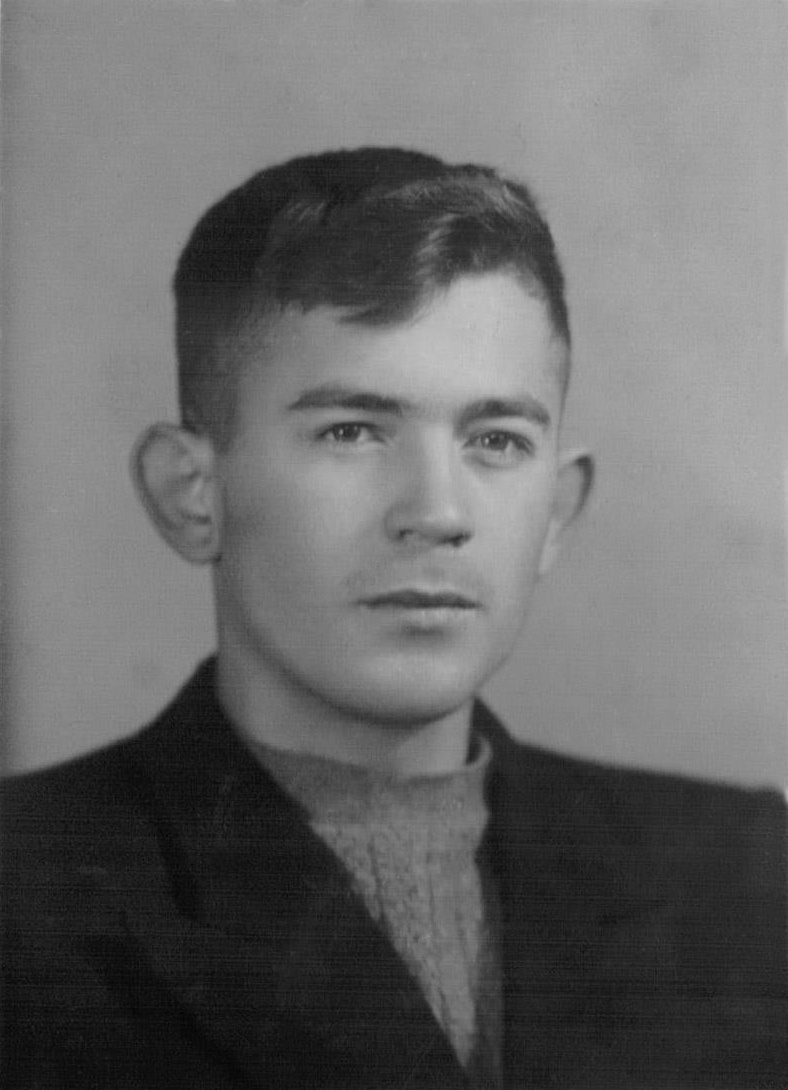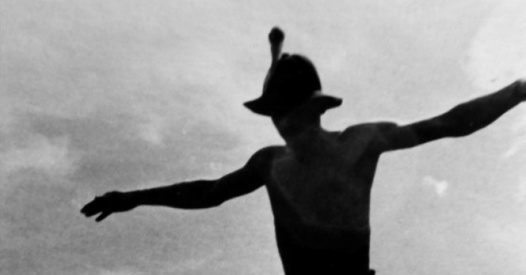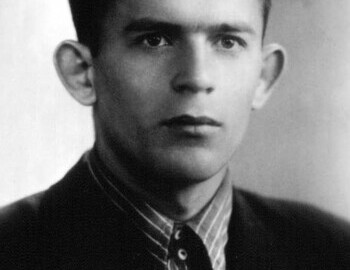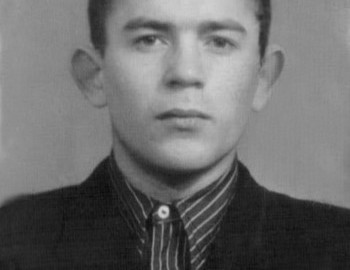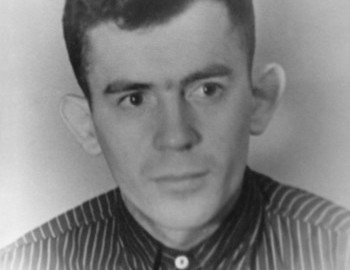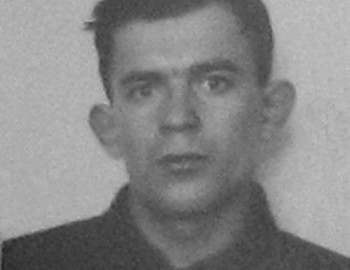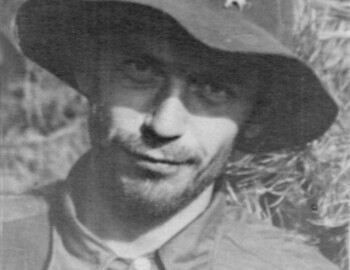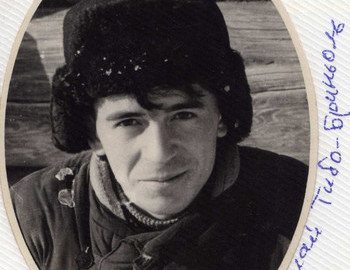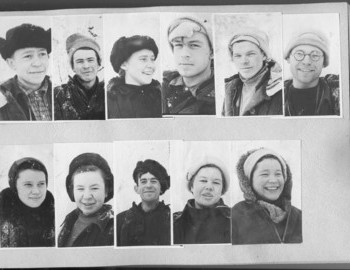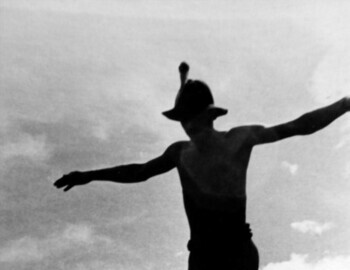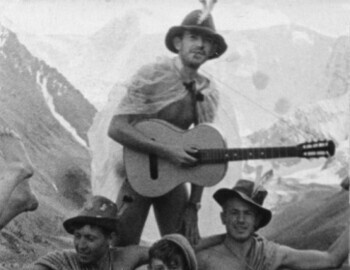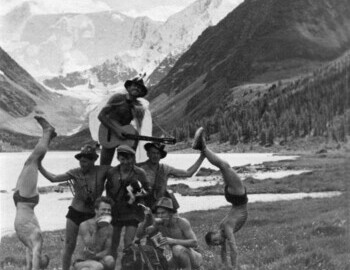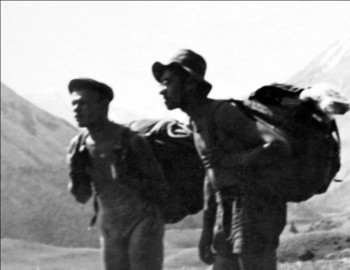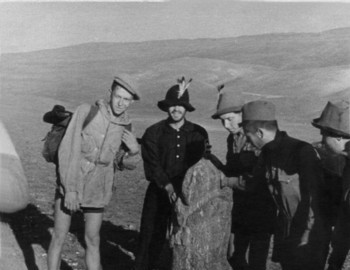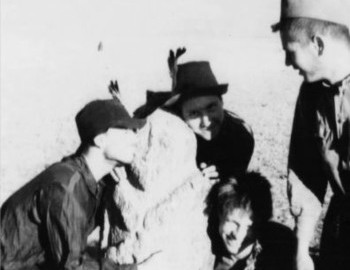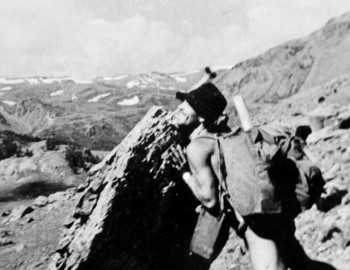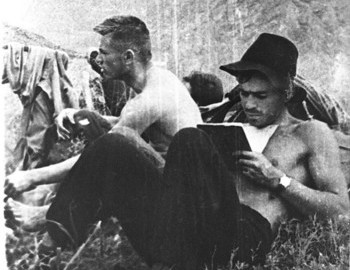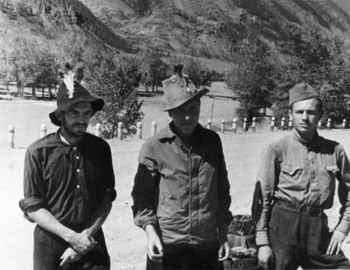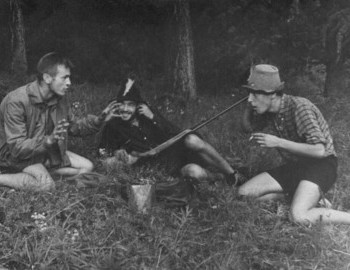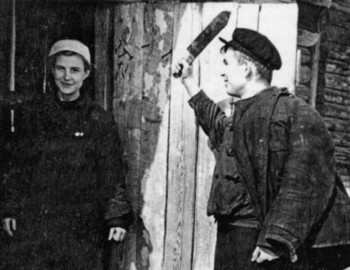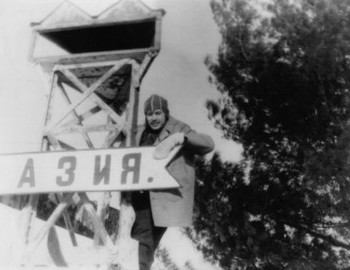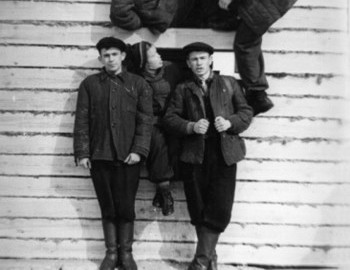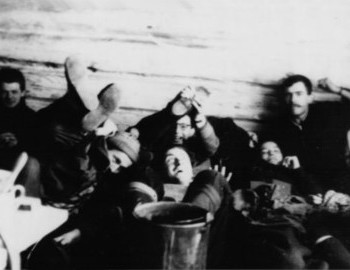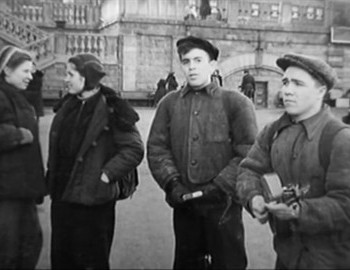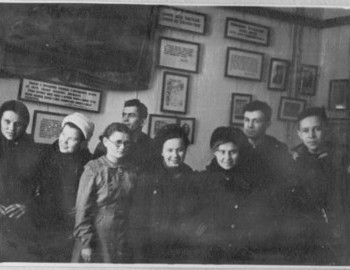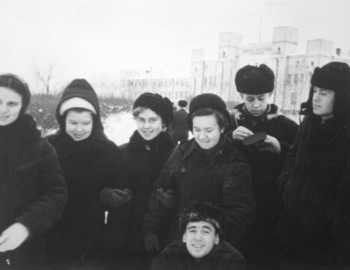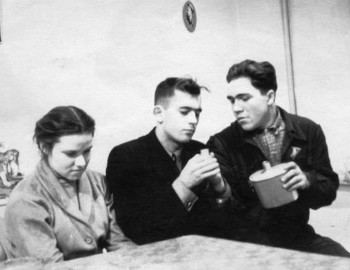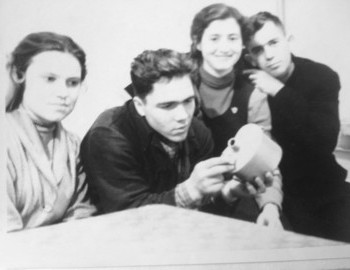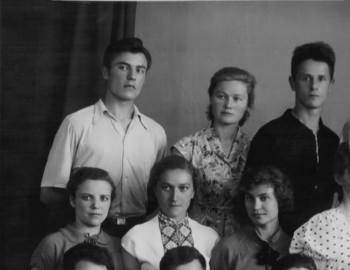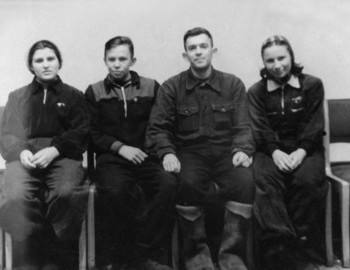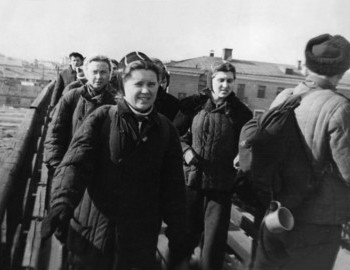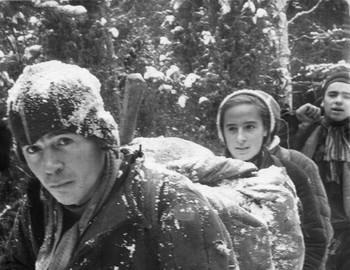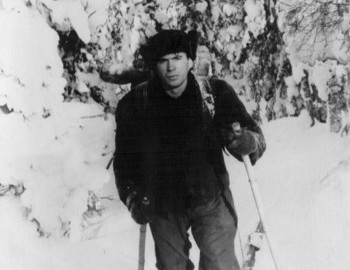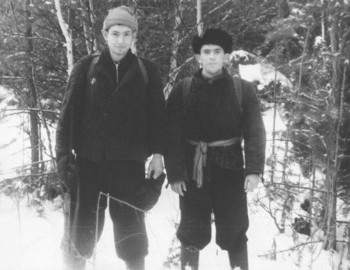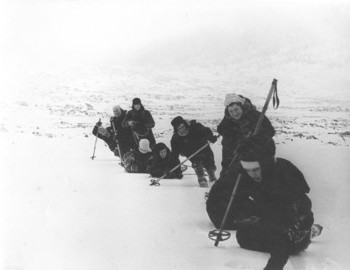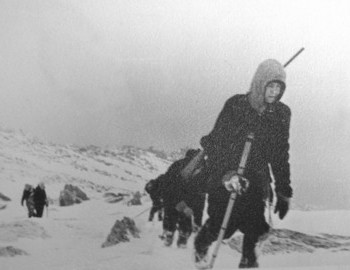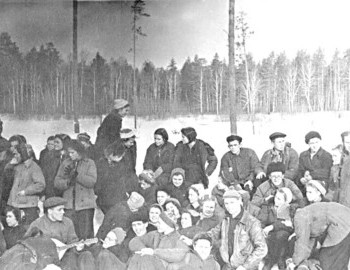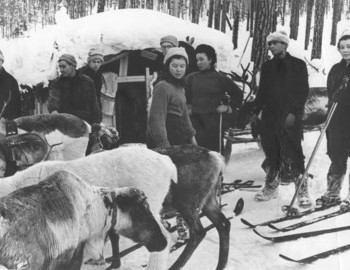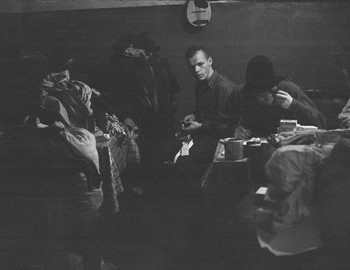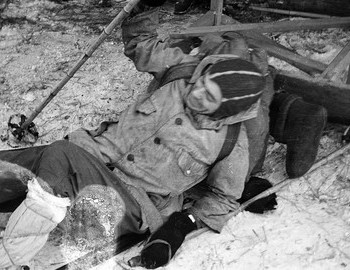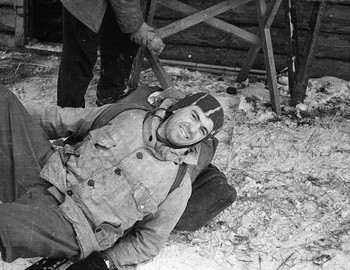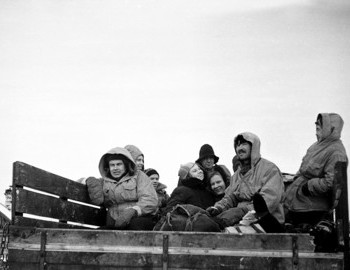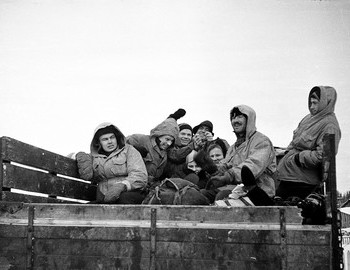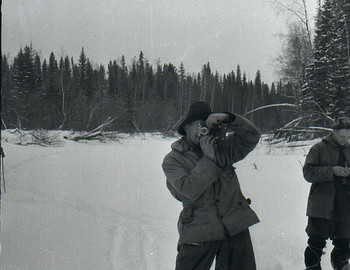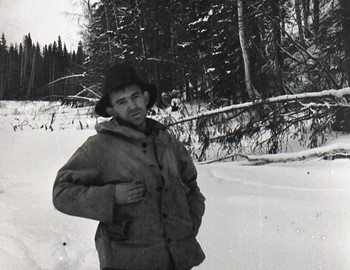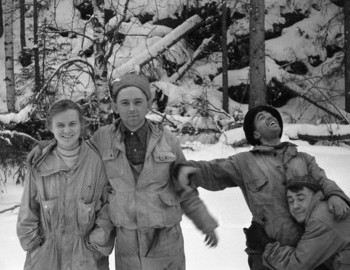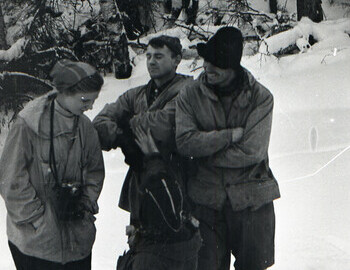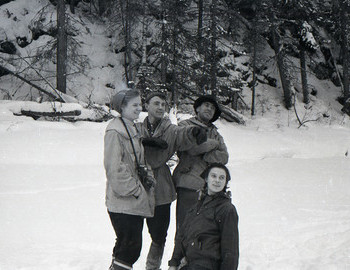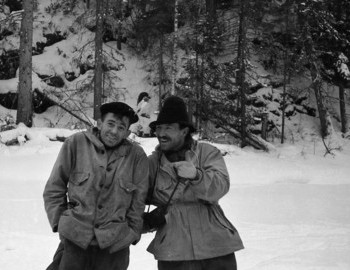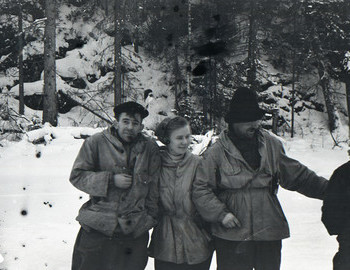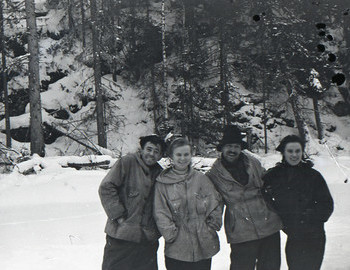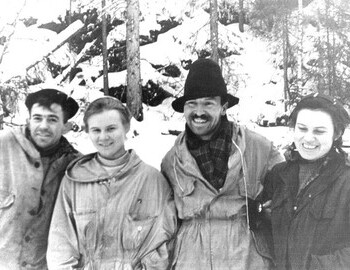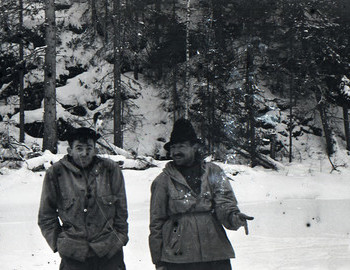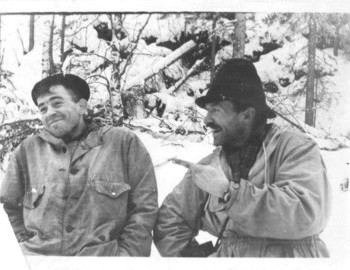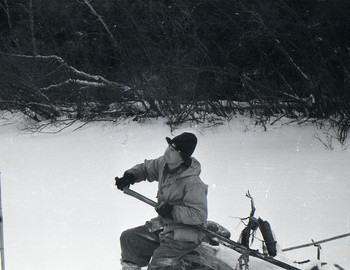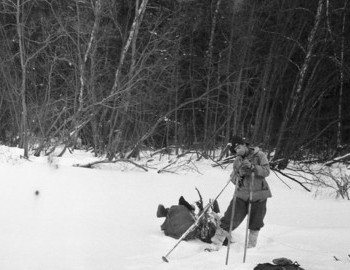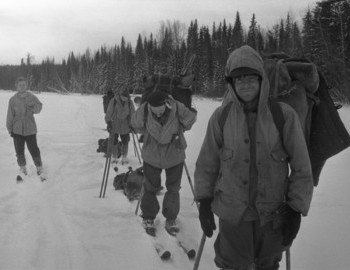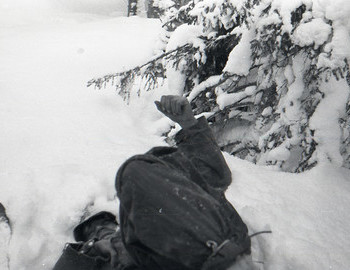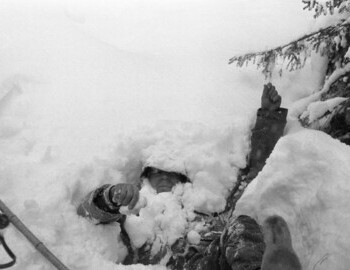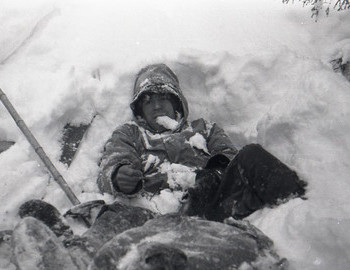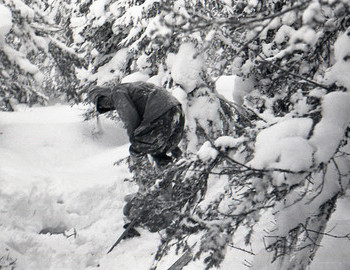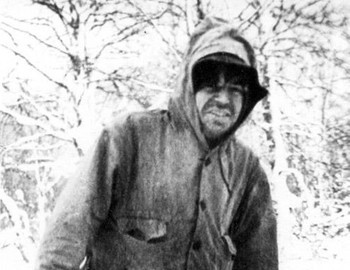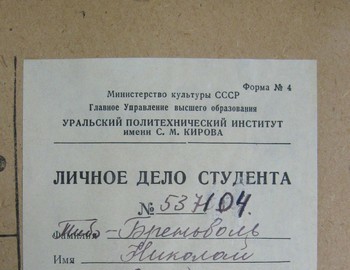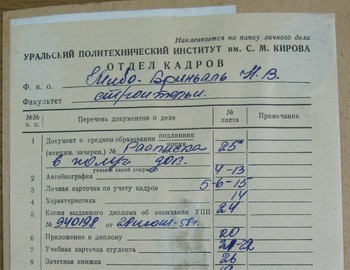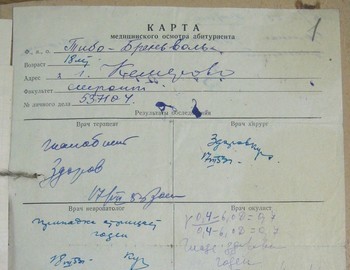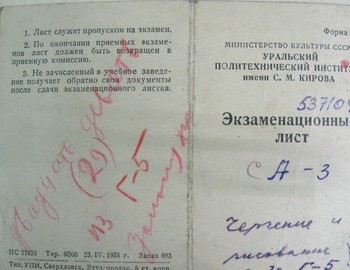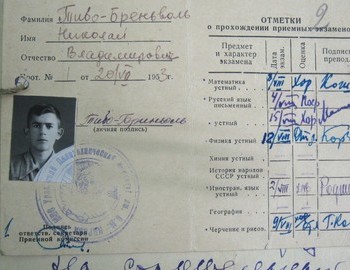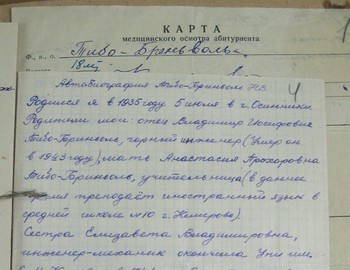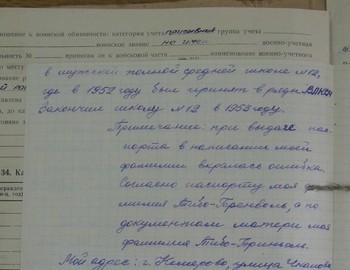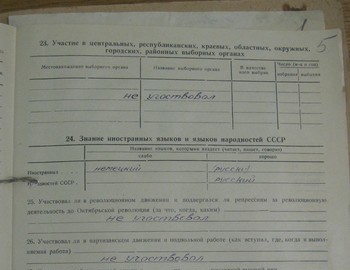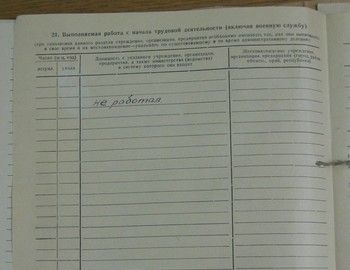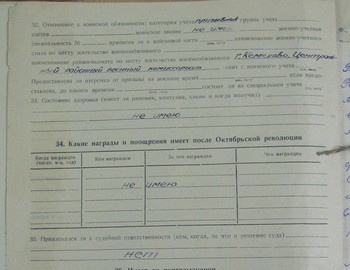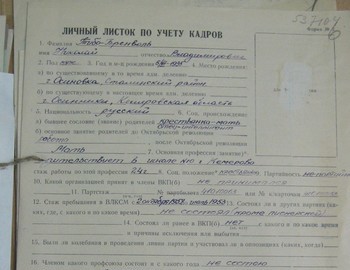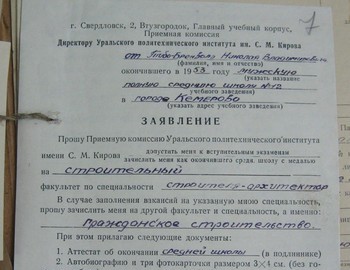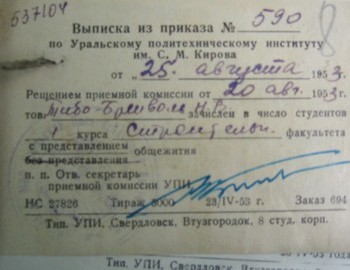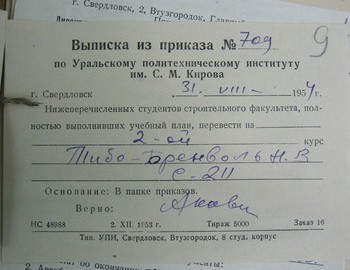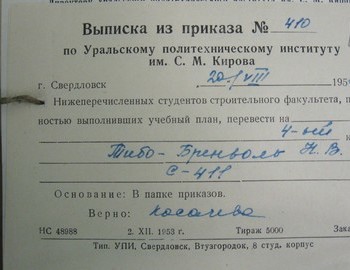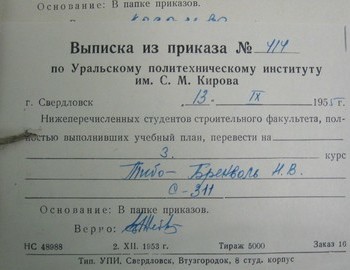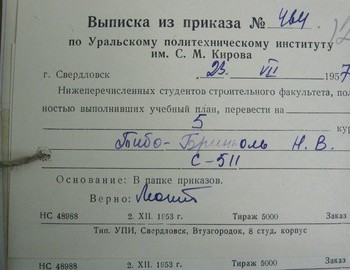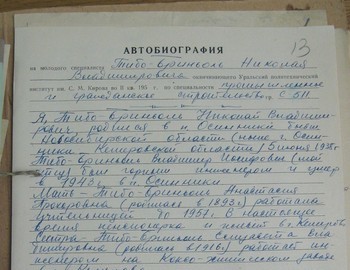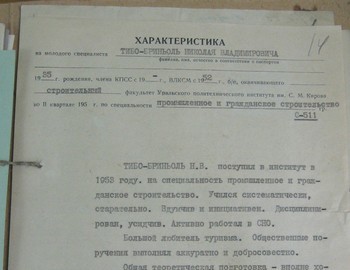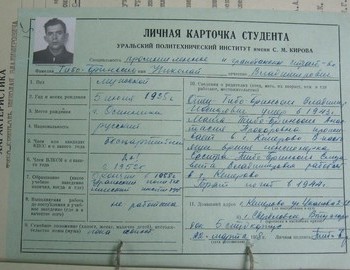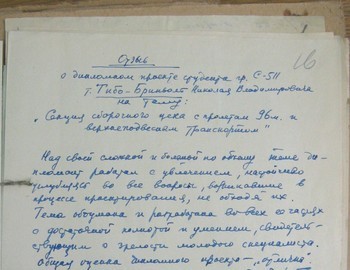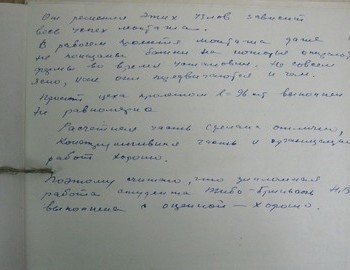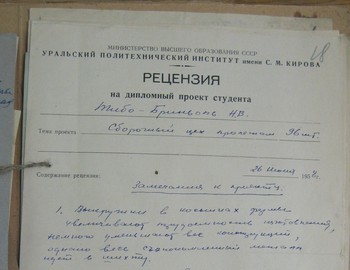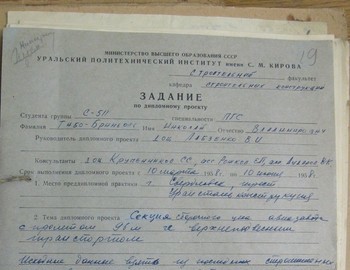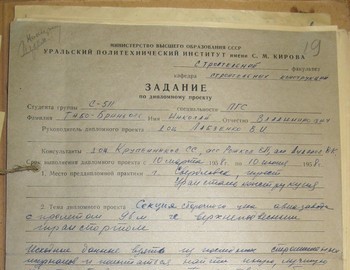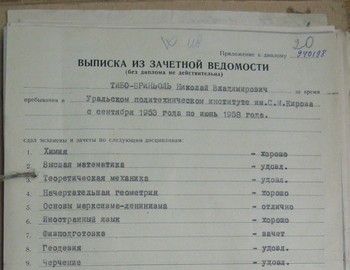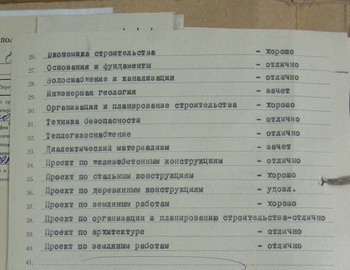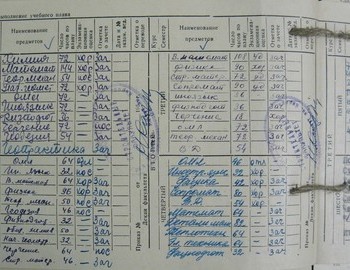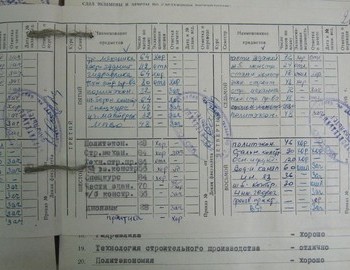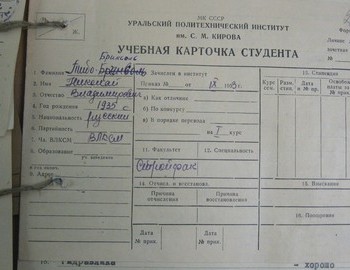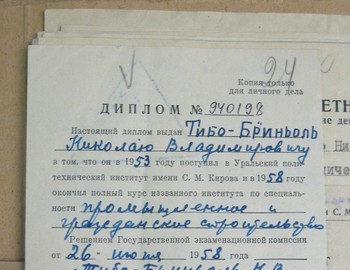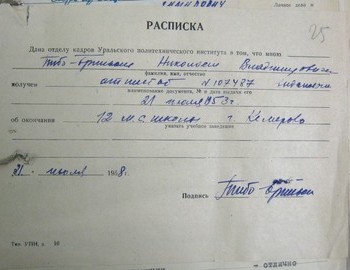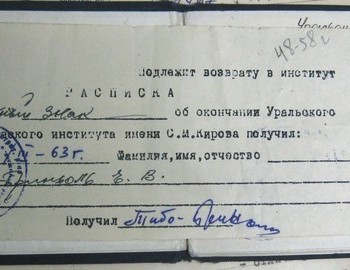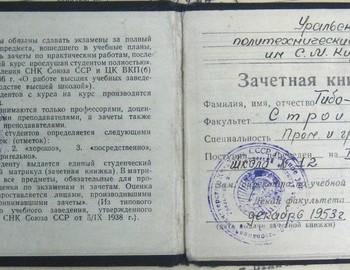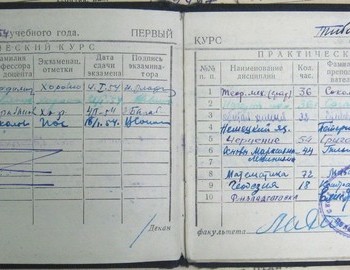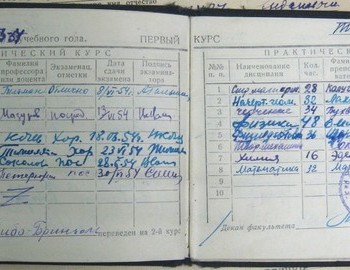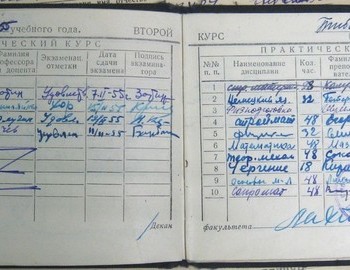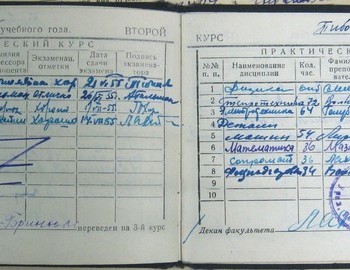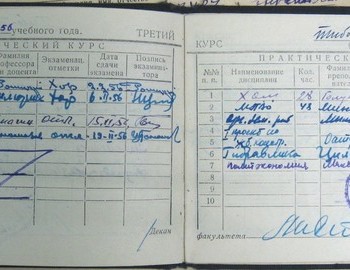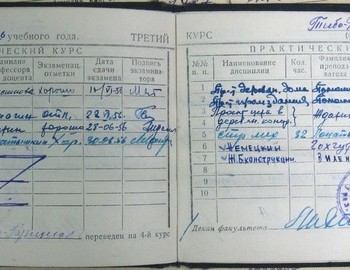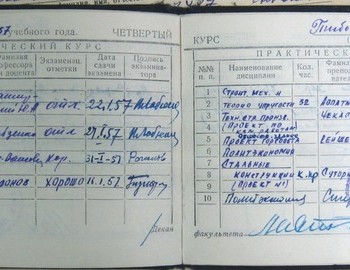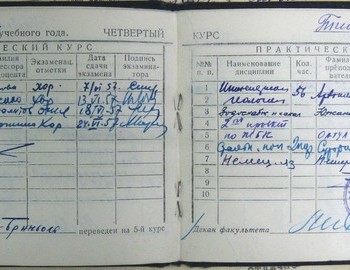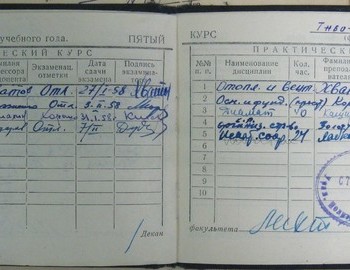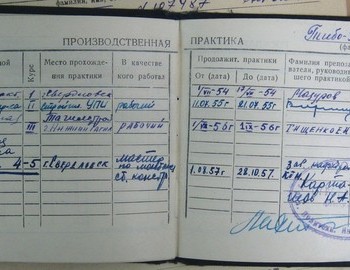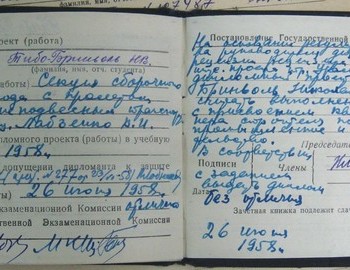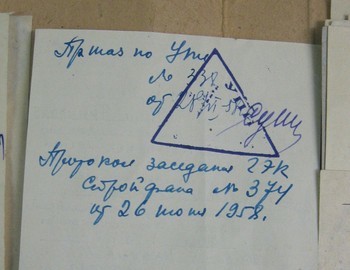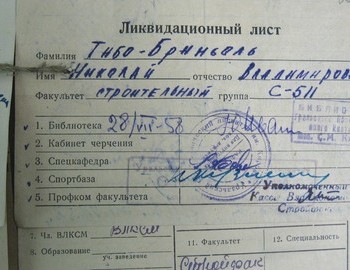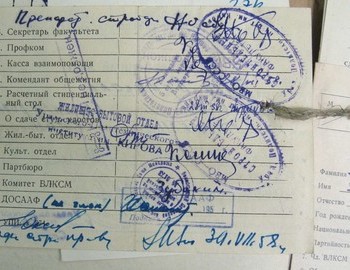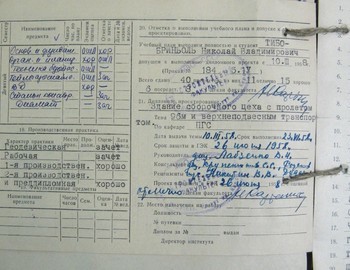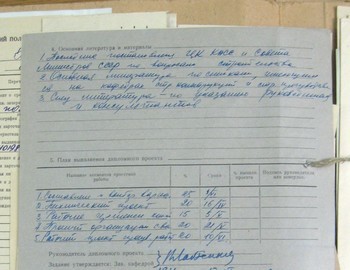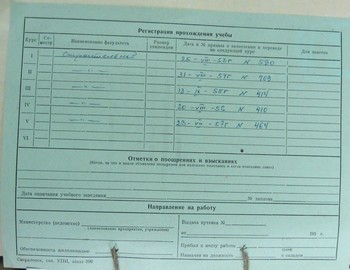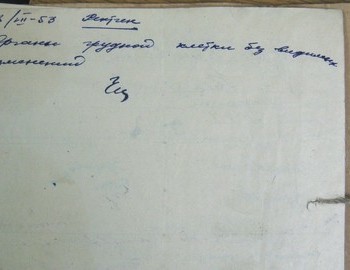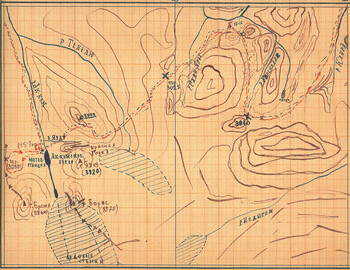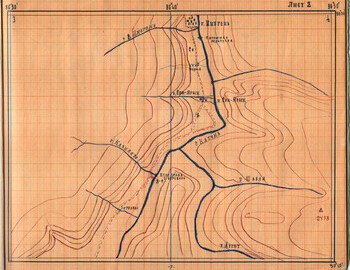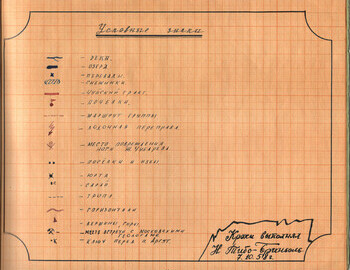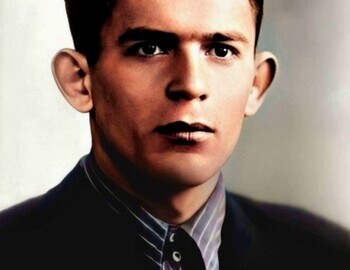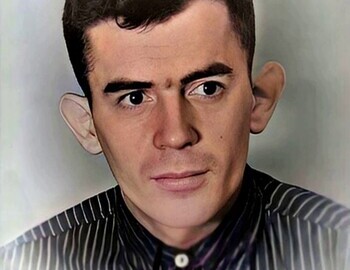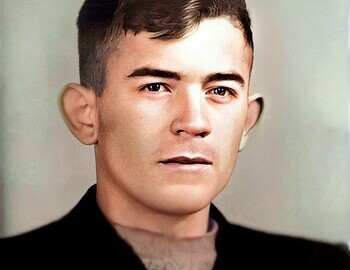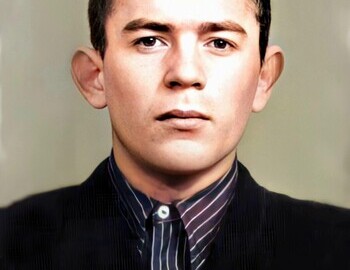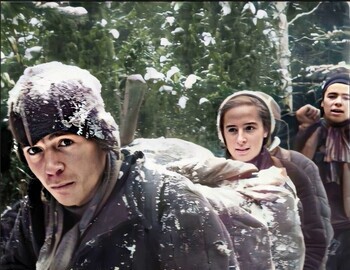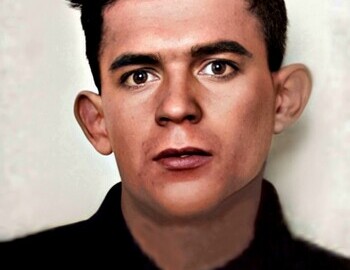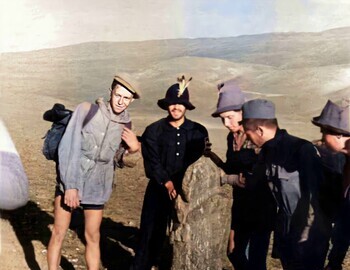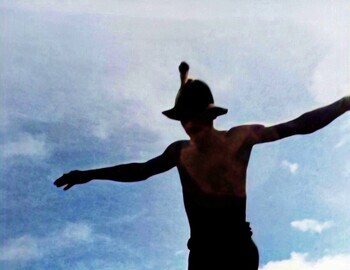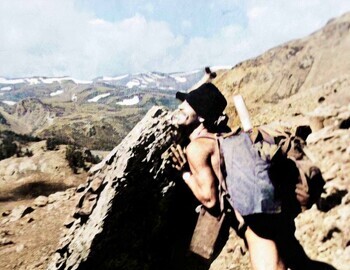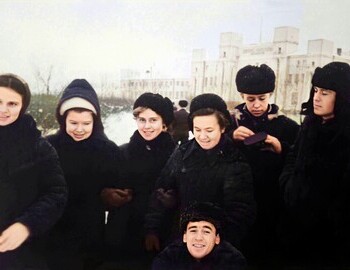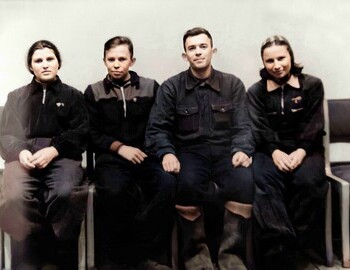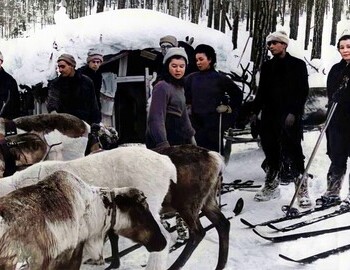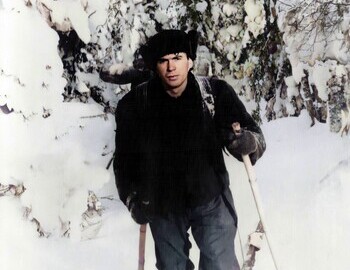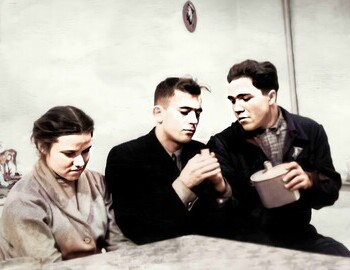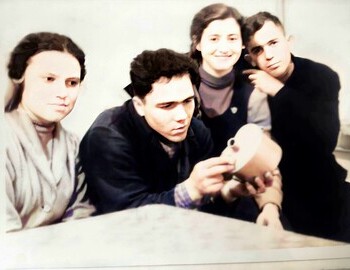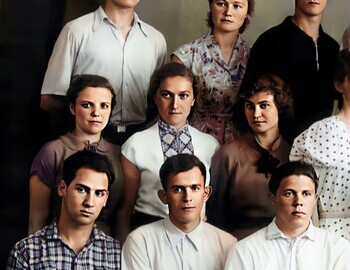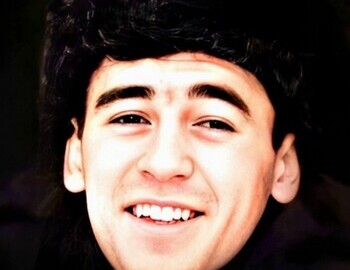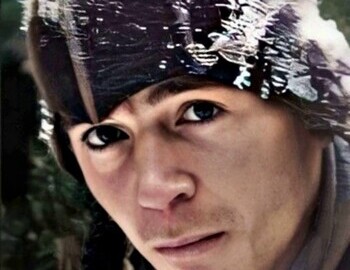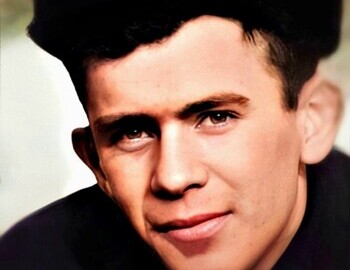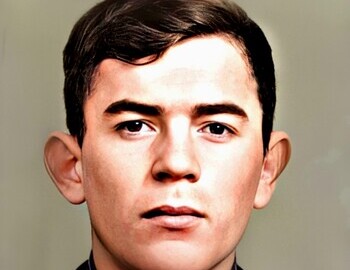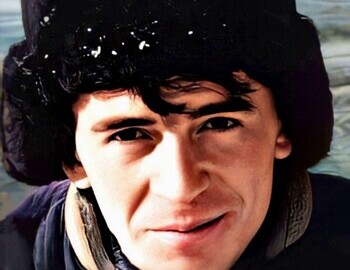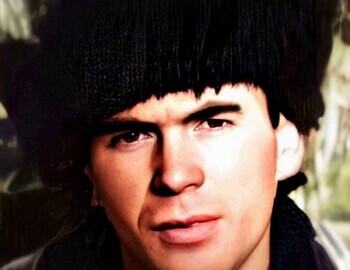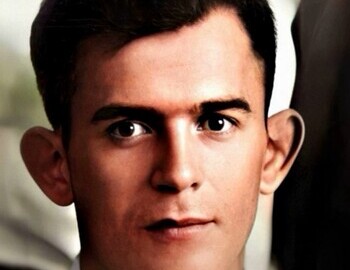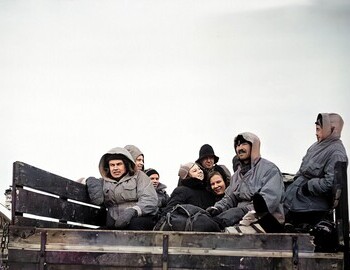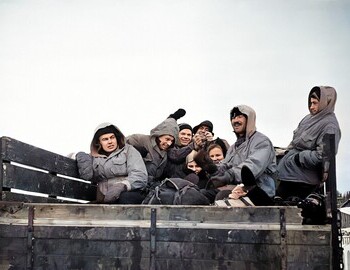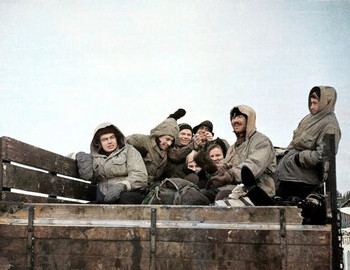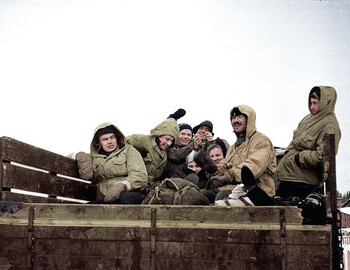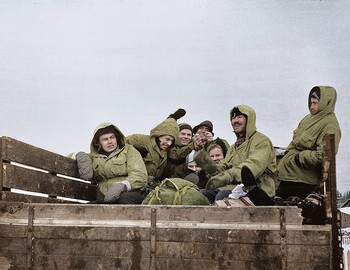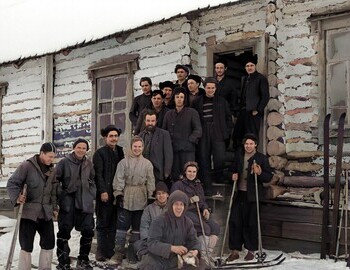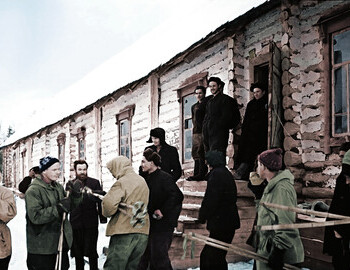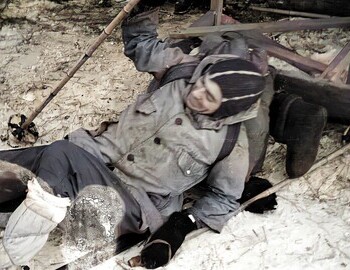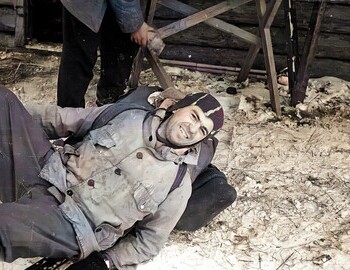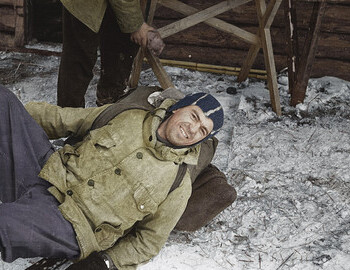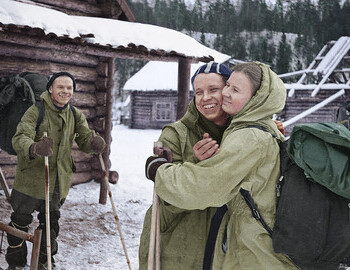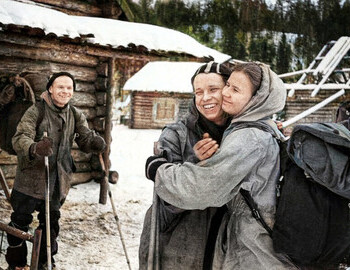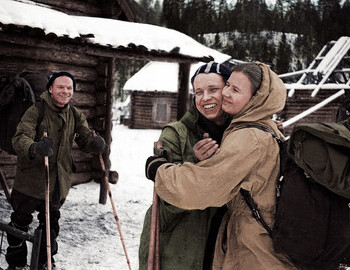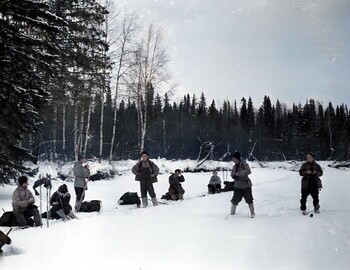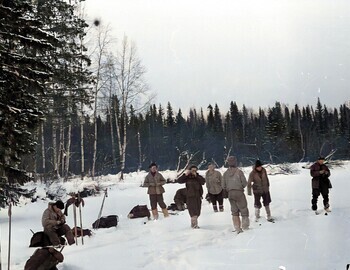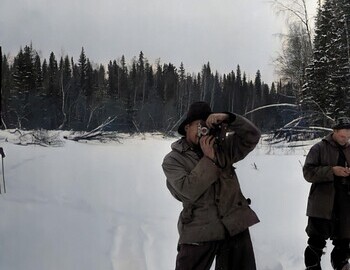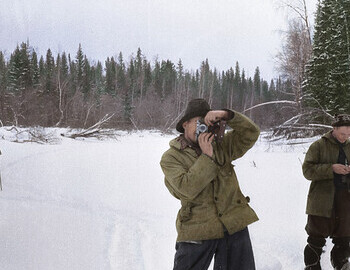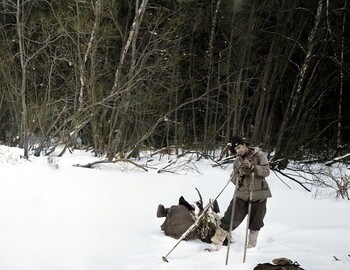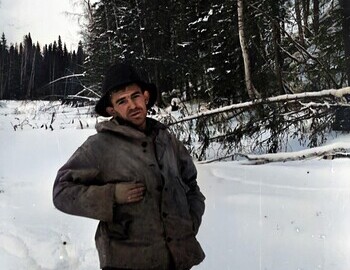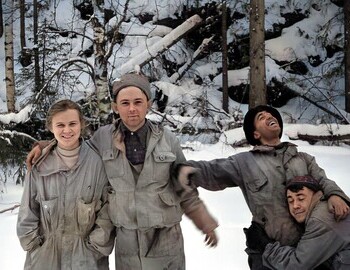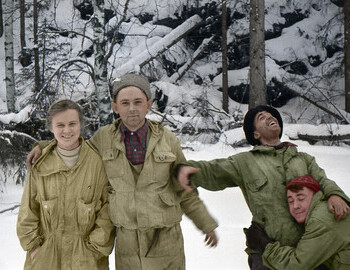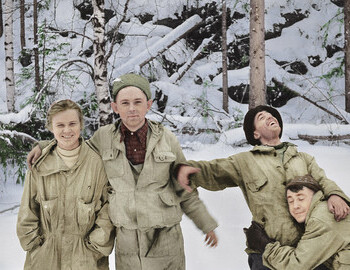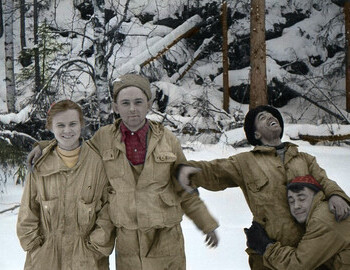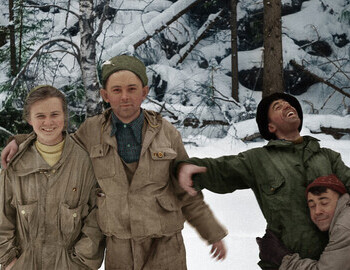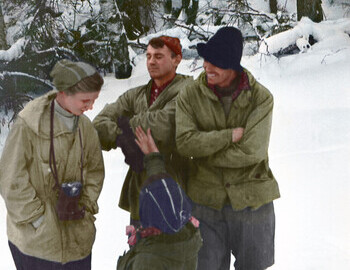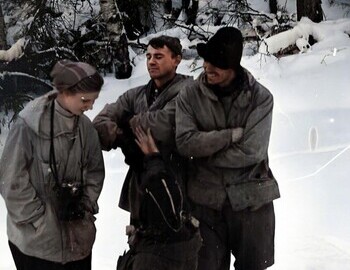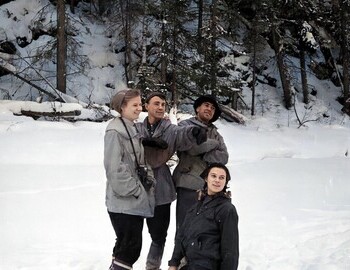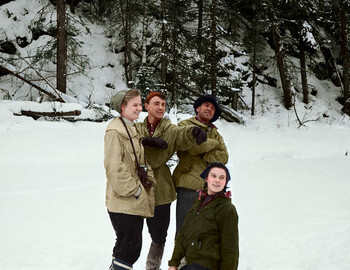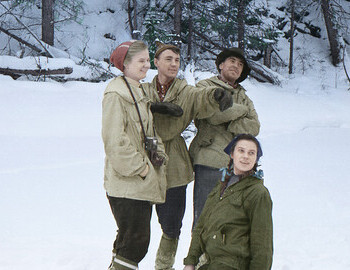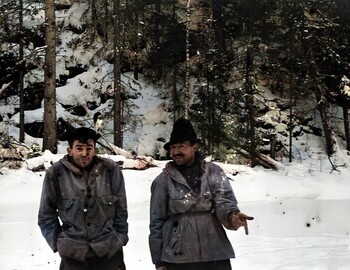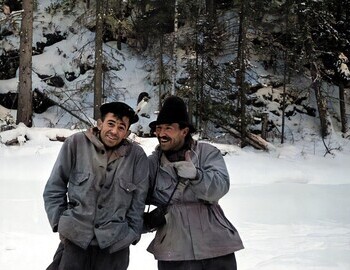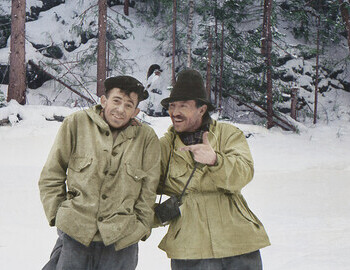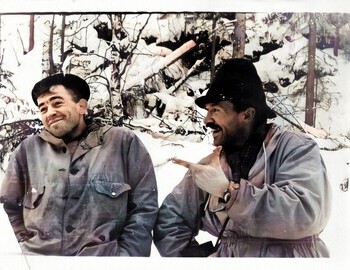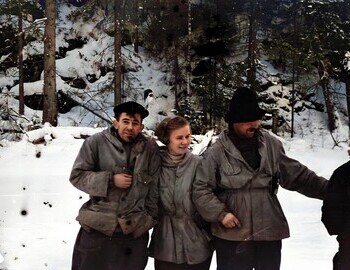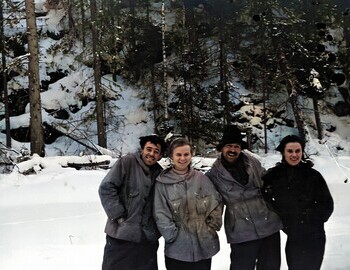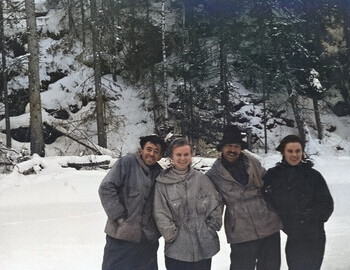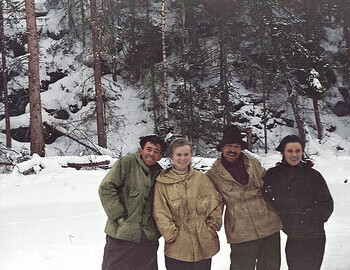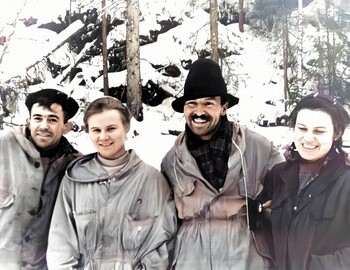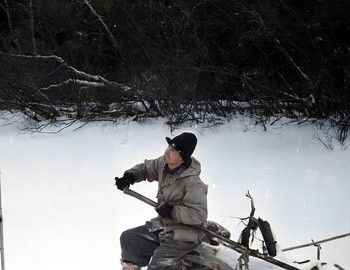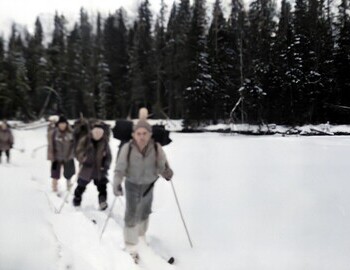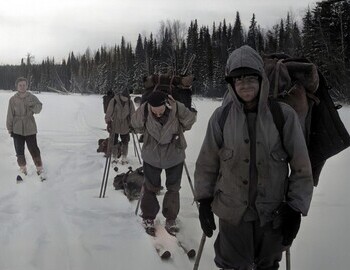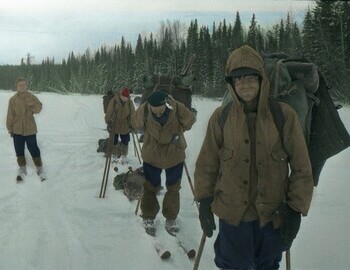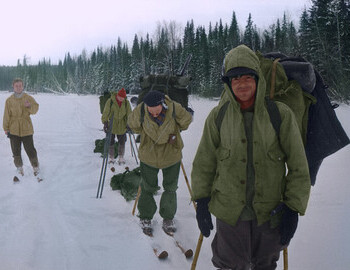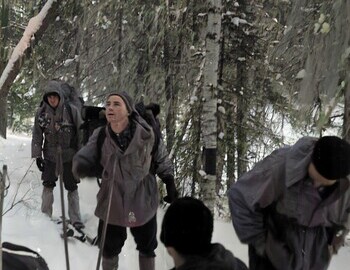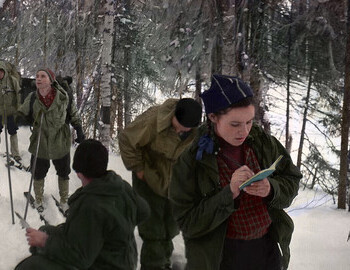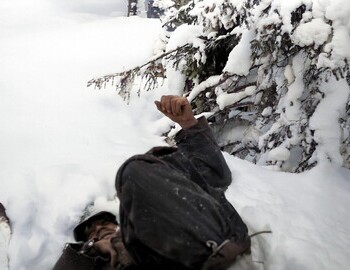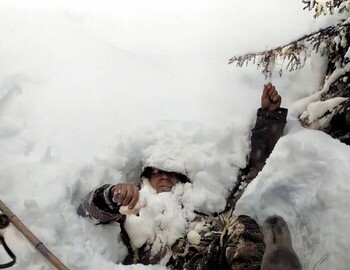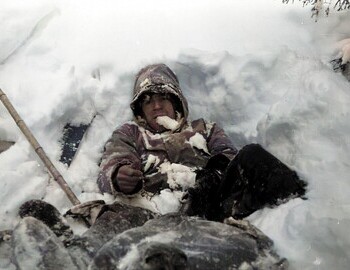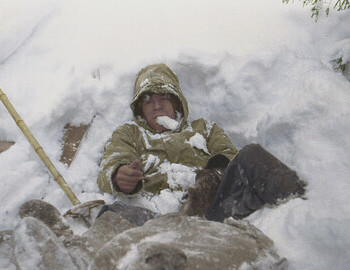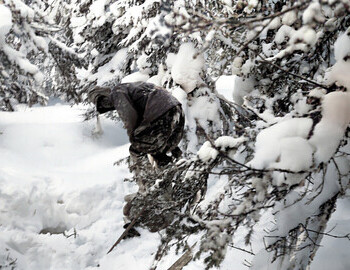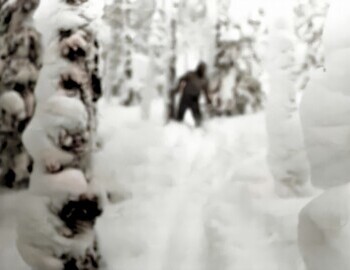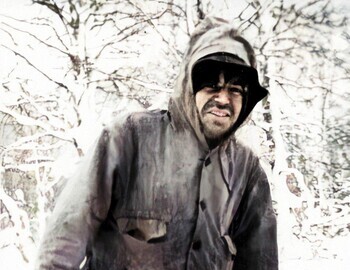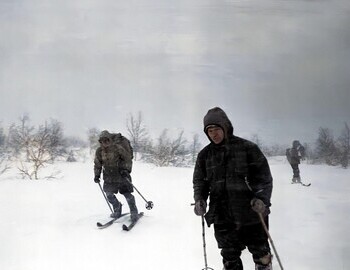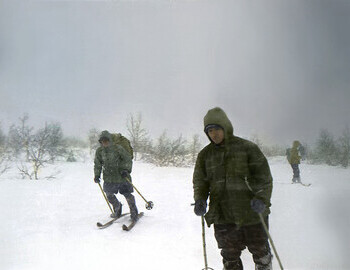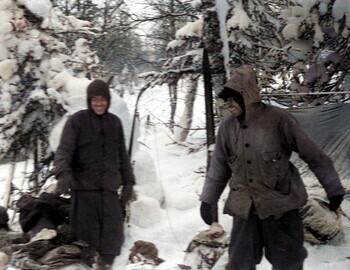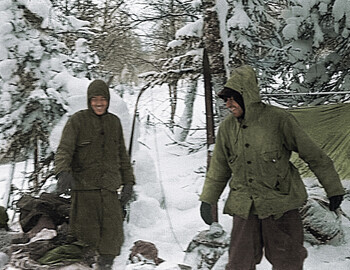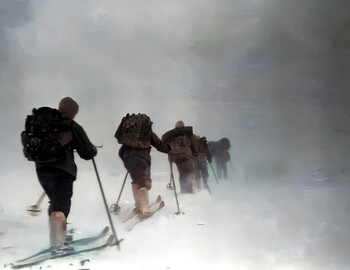
Nikolay Vladimirovich Thibeaux-Brignolle (Tibo)
Nikolay (Kolya, Tibo) Vladimirovich Thibeaux Brignolle (23) was born on June 5, 1935, in Osinniki where his father, Vladimir Iosifovich, served his 10 year term term. At the time Osinniki was the site of a branch of Gulag Siblag (Siberal camp). His mother, elder brother and sister were likely banished to the same place as “the family of the enemy of the people”. His father, Vladimir Iosifovich Thibeaux Brignolle, was born on May 13, 1886, in Yekaterinburg in the family of a mining engineer. After graduation from the Freiberg Mining Academy in 1912 or 1913, he worked in the Urals from 1913. As of October 1917, he was the manager of the mines of the Revda Mining Region. After 1924 he took part in drafting a plan on the development of the Urals mining industry, including the Magnitogorsk metallurgical works, the largest such enterprise in Europe in that period. However, in January 1931, he was arrested on falsified charges of participation in a non-existing Urals Industrial Party. Sentenced to 10 years in the Gulag, from 1932 he served his time at the camp, working at the Osinnikovskiy mine works. In 1933, he was permitted meetings with his family, resulting in the birth of his younger son, Nikolay.
Was Nikolay Thibeaux-Brignolle born in a camp? "This is not true. Only Kolya's father, Vladimir Iosifovich, was sent to a camp. His wife and children lived in Sverdlovsk, and then - in Osinniki." - Marina Evgenyevna Kazantseva from an interview taken by Maria Piskareva.
However, in 1937 the restrictions were back, with the father sent to a camp in Eastern Siberia to work at the Kuznetskiy coal-mining works, where he died in September 1943. Nikolay’s elder brother, Vladimir, died in the Battle of Kursk in the summer of the same year. Nikolay started school in Osinniki in 1943. In 1946 the family moved to Kemerovo, where he graduated from school in 1953. In the same year, thanks to Stalin’s death in March 1953, he was admitted to the Department of Construction of the UPI, from which he graduated in 1958 and then worked in a construction trust in Sverdlovsk. In 1955-56 Nikolay was a member of the qualifying commission of the UPI hiking club. He had taken part in five hikes, one of which he led.
Kolya was the son of a French communist, repressed in the Stalin years. He came in Sverdlovsk from Kemerovo, studied well, finished the institute with an average score of 4.15. His studies were going progressively well and to the end of his education was much better than the first year. Thibeaux-Brignolle had experience in hiking trips of various categories of difficulty, was very popular among UPI students - members of the sports club. Everyone who knew Thibeaux-Brignolle noted his energy, inventiveness, friendliness and humor.
He was 23 years old when he died. Thibeaux-Brignolle was laid to rest on May 12, 1959, in Mihaylovskoe Cemetery, Yekaterinburg, Sverdlovsk Oblast, Russia.
The surname Thibeaux is aristocratic and they have their coat of arms.
"The date of birth on Thibeaux-Brignolle grave pedestal in Mihaylovskoe Cemetery is June 5, 1935. I looked at all the known archival documents published on the Internet by the Memory of Dyatlov group Foundation and found out that the questionnaire, where the wrong date of birth was written - June 5 - and from there on automatically copied to the grave plate, was filled not by Kolya himself, but by a Human Resources personnel officer who wrote the letter l as the letter n." - Maria Piskareva.
- Born on July 5, 1935 in the village of Osinovka, Stalinsky district, Novosibirsk region (now the city of Osinniki, Kemerovo region), USSR.
- On September 1, 1943 started first grade in elementary school №8 in the city of Osinniki, Kemerovo region.
- "In 1946, for family reasons, I moved to Kemerovo, where I entered primary school №18" - from his autobiography dated June 25, 1953. To his admission in UPI in 1953 Nikolay lived in apt. 12 of the this house on
2 Chkalova St, Kemerovo. - September 1951, after graduating from the seven-year school, he began studying at Kemerovo Male Secondary School №12.
- October 2, 1952, became a member of the VLKSM;
- July 1953, graduated from men's secondary school №12 of the city of Kemerovo;
- July 17, 1953, submitted an application for admission to the construction faculty of the Ural Polytechnic Institute;
- August 2-15, 1953, took the admission exams of the construction faculty of the Ural Polytechnic Institute;
- August 20, 1953, enrolled as a student of the first course of the construction faculty of the Ural Polytechnic Institute with the provision of dormitories;
- July 1-17, 1954, summer geodetic practice in Sverdlovsk;
- July 11-21, 1955, completed educational production (work) practice as a construction worker at the Ural Polytechnic Institute;
- summer of 1956 - Category II hike in Southern Ural: city of Zlatoust - Zyuratkul lake - village of Aleksandrovka - Mt Yaman Tau - Dvoynisha station.
N. Thibeaux-Brignolle (leader) - August 1 - September 1, 1956 - passed the 1st production practice as a worker in the Tagilstroy trust, the city of Nizhny Tagil, Sverdlovsk region. Grade for practice: "good".
- November 1956 photo album - Category I weekend trek for 3 days till the 7th on Chusovaya river: Kuzino station - Nizhnee village - village Treka - village Kamenka - Kuzino station
I. Dyatlov (leader), L. Dubinina, E. Zinovyev, Y. Krivonischenko, N. Popov, N. Thibeaux-Brignolle, N. Tregubov, Z. Kolmogorova, about 50 hikers in total - February 10-26, 1957 photo album - Category II hike in Northern Ural: N. Toshemka - upper sources of Vizhay river - ascend to Mt. Ekvachakhl 1290m - source of Ivdel river - Ivdel river between the ridges of Hozatump and Kent Nyer - Ivdel
I. Dyatlov (leader), B. Bychkov, L. Grigoryeva, Z. Kolmogorova, M. Mitrofanova, N. Oshtepkova, L. Russkyh, N. Thibeaux-Brignolle, N. Tregubov, V. Halizov, E. Chubarev, V. Shunin - August 1 - October 28, 1957 - passed the 2nd production and undergraduate practice as a foreman in the installation of steel structures at the Ural Heavy Machine Building Plant (UZTM) and at the Uralstalkonstruktsiya trust. Practice leader Ph.D. N.A. Kartashov Rating: "good".
- June 26, 1958 - Successfully defended the thesis. The theme of the diploma project is "Section of the assembly shop of the aircraft plant with a span of 96m and top-suspended transport." Head chief Department of "Building structures" Ph.D. Associate Professor Ilyich Labzenko Vissarion. The rating is "excellent".
- June 1958 - graduated from the Faculty of Civil Engineering of the Ural Polytechnic Institute named after S.M. Kirov (specialty: industrial and civil construction; qualification: civil engineer).
- after graduating from the UPI, he worked in Sverdlovsk as a foreman in the construction trust №89.
- July 31 - August 22, 1958 photo album - Category III hike in Altai: village of Inya - river mouth - Akkem - Akkemskoye Ozero - Argut river - Karagem - Chegan - Uzun. I. Dyatlov (leader), P. Bartolomey, R. Sedov, R. Slobodin, N. Thibeaux-Brignolle, N. Tregubov, V. Halizov, A. Budrin, V. Shunin, Y. Yudin
- winter of 1958 - Category I trek in Middle Ural
V. Shunin (leader), N. Thibeaux-Brignolle - January 23, 1959 - went on a trek in the Northern Urals as part of the Dyatlov group.
- February 2, 1959 - the official date of death in the area of height 1079 (Mt Kholat Syakhl).
- At the time of his death he was working in the construction department of Sverdlovsk. The name is not exactly known. Options: UNR 154 or Office of Mechanization №1.
| Nikolay Thibeaux-Brignolle camera |
An emotional interview of Maria Piskareva with Anna Ermolaeva - Nikolay Thibeaux-Brignolle second cousin, Marina Evgenyevna Kazantseva, and her brother Sergey Evgenyevich Kazantsev - researchers of the genus Thibeaux-Brignolle. This condensed story is the result of Marina Evgenyevna's many years of searching for and studying archival documents about the Thibeaux-Brignolle family.
Recollections of character
From the characteristics of a young specialist
N.V. Thibeaux-Brignolle studied systematically, diligently. Thoughtful and proactive. Disciplined, diligent. Actively worked in Student Scientific Society. Big fan of tourism. Public assignments carried out accurately and conscientiously. The general theoretical background is quite good. Can independently work in a design organization, in production and at a research institute.
From the review of Associate Professor V.I. Labzenko about the graduation project of Nikolay Thibeaux-Brignolle
The diploma student worked on his complex and large topic with enthusiasm, persistently delving into all the issues that arose in the design process, not bypassing them. The theme is thought out and developed in all its parts with sufficient completeness and skill, indicating the maturity of a young specialist. The overall assessment of the graduation project is "excellent". I would like to wish the student a little more composure, purposefulness and orderliness in his future work.
Notes from the personal diary of Yuri Blinov
6 - Kolya Thibeaux-Brignolle - graduated from the construction department of our institute last year 1958. Went with Igor on many trips. He is a doer.
Evgeniy Grigorievich Zinovyev "Footprints in the snow"
I remember what kind of guys they were during their lifetime. In the first mass trek along the Chusovaya River in 1956, Yura Doroshenko, Volodya Linchevsky and I became guardians of the mysterious Nikolay Thibeaux-Brignolle. In addition to his unusual French surname, which gave him a lot of trouble, Kolya impressed us with his imposing appearance. Medium height, dark, with a pleasant intelligent face and alert eyes, he dressed himself in seemingly unthinkable clothes. On the head is a black cap with ear flaps with untied ears sticking up, on the legs are black rubber molded all-terrain boots, on the body are dark trousers, covered from above with a simple all-weather padded jacket, belted with a sash with an ax stuck behind it. Well, right - well done from the big road!
Kolya tracked footprints on freshly fallen snow, taught how to harvest firewood from “rusk” (dry trees), kindle a fire in conditions of bad snow, melt snow in buckets on a common fire for cooking hot food and tea. Many of us, especially urban people, were really beginners and did not know how to do any of this. With all this, Kolya was a merry fellow, constantly joking. He gave the impression of a reliable, self-confident person. Yes, and in ordinary student life, Nikolay Thibeaux-Brignolle behaved with dignity. In a free independent manner, he communicated with teachers and the dean of the Faculty of Civil Engineering. He was talented and original. In tourism, this was manifested in the fact that Kolya, with great skill and grace, drew terrain on the route with carefully drawn contour lines and topographic signs on the route. At that time, detailed maps for tourists were of great value, and all of them on a scale of less than a million were classified.
Kolya enjoyed great fame and popularity in student dormitories. He was sometimes brought rare and then forbidden books from the category of rarities. He generously endowed us, newly acquired friends who were in his confidence, with the opportunity for one or two nights to get acquainted with the next book discovery. Thus, unexpectedly, a pre-revolutionary edition of Muller's book "The Sexual Question" appeared in our dorm room. Thus, a gap in the sexual education of students was closed in the dormitory №5 of the university campus of the UPI.
Nikolay was indispensable even in difficult treks. He could drag his heavy round Abalakov backpack to one of the mountain passes, scolding and shaming his indispensable rider with all his might. Humor helped not only himself, but also his companions to relax from physical and stressful travels. That is why Nikolay Thibeaux-Brignolle, with all his non-athletic build, invariably entered the core of amateur groups formed by Igor Dyatlov for regular treks.
Maria Piskareva "Nikolay Thibeaux-Brignolle. Straight Talk" (read the whole interview)
M.E.K.: As my mother (Kolya’s cousin) said, for some time Kolya lived with his aunt Elizaveta Iosifovna in Sverdlovsk. I think in the first year, at the very beginning. But Elizaveta Iosifovna was quite strict, apparently, she brought up a lot, taught. And he ran away from her somewhere. She became worried, looking for him. After that, he settled down to live in a hostel. His mother, probably, treated him very kindly, as with the youngest son, and he was not used to the pill.
Then, I remember how he once came to Kamensk-Uralsky. He was very nice, talked and joked with me and my brother Sergey, gave us a great new book "1001 Nights", a children's edition. And I remember that he was in "velveteen". It was then a very fashionable corduroy jacket, on the chest there were two pockets with sewn-in zippers. They didn’t buy such jackets, but sewed them themselves in the family, for example, a young man asks: mom, sew! There were no such velvets in Kamensk yet. Kolya was sewn by either her mother or her sister Lisa.
Kolya was cheerful and talkative. It was easy to communicate with him. He was a great inventor, a lover of jokes or jokes. If they were photographed, then they necessarily depicted something, played some kind of scene.
MP: Did Kolya have any special passion for something, something like a hobby?
M.E.K.: The most important hobby is hiking. Because he liked to go camping, he was both determined and fearless. He just needed to go to wild, harsh lands from time to time and put himself to the test.
As a child, he loved to read books. When he lived in Osinniki, where he was born, his mother taught the children to grow vegetables and take care of animals. He knew how to do it all. I know about Kolya's other hobbies only from Matveeva's book and from the Internet: he loved and knew how to take pictures, drew sketches with great art, loved to read samizdat literature.
MP: Tell me, please, is it true that Kolya's mother asked him not to go on this trip?
M.E.K.: Yes, Kolya's mother begged him not to go on this trip. Kolya said: "For the last time, mother!" Then she let him go.
My grandmother Anna Iosifovna once recalled that Kolya was rather absent-minded and had a tendency to get into all sorts of trouble. Once he wanted to cross the road at a crossroads and stopped, waiting for a truck with a trailer, on which lay long logs, to pass. The truck passed in front of Kolya and turned right. And Kolya went to cross the road and just ran into logs.
I also remember how they said that Colin's woolen socks were on one of the girls. It was believed that he gave them to her, donated. He acted like a knight. Elizaveta Iosifovna and Anna Iosifovna saw the situation at that moment as quite light and leaving the possibility of chivalry.
Sergey Evgenyevich recalls that in the hostel Kolya had problems in the room. He came to visit his aunt and complained about the guys. While he was sleeping, someone put cotton wool between his toes and set it on fire. It was a stupid joke, but Kolya wasn't ready to jump up and punch someone in the face.
Maria Piskareva "One Hundred Questions to Yudin"
Well, there with Kolya Tibo, with Rustik Slobodin, we walked together in Altai, and with Igor Dyatlov. And with Kolya Tibo... he is such a wonderful comrade and friend, he has such a fate, from a repressed family, but he was so attentive on treks. When I went on a weekend hike for the first time, I didn’t even wear a backpack in my life, it means that he was already older than me, so he took care of people, he’ll fix it, fix the straps, everything else, he’ll talk, well .... was an amazing friend.
From Sergey Nikolaevich Sogrin's memoirs of the Dyatlov group written in 2005 in Krasnaya Polyana at the request of Evgeniy Zinovyev
We met Nikolay Tibo at the institute and somehow quickly got along. Probably there was no one in the section who would not succumb to Kolya's charm. I regret that we did not have a single serious hike together with him.
From Moisey Abramovich Akselrod's letter dated February 19, 1990, archive of Evgeniy Zinovyev
3. Kolya Tibo was emphatically careless and undemanding to comfort. ...I suppose that he was resting his head on a log - hence the trauma. And if not a log, then something solid.
From the memoirs of Vladimir Lvovich Shunin
An inventor, a lively and energetic person, Thibeaux de Brignoles, as we sometimes called him jokingly.
From the memoirs of Tamara Mihaylovna Shitlina (Vedyakina)
... Igor Dyatlov, Yuri Krivonischenko, Kolya Tibo were patriots in the best sense of the word. They studied not in order to receive more money for themselves, but in order to bring more benefit to their country.
It happened that Kolya Tibo sat down next to me at a tourists meeting. (He was already working, so he was a little late to start) I told him what was said at the beginning of the meeting and asked him a counter question: “How is work?” He said that everything was fine, that they - young specialists - were taken care of, provided with everything necessary, taught, only "it's a shame that so far there is not enough return from us." He also added that he came up with something interesting, and now, when he implements his plan, then he will not be so ashamed.
Pyotr Ivanovich Bartolomey "The Story of One Life"
August 14, 1958. Here I want to make a digression. The diary briefly says: "A day off. We rested all day." In fact, I remember it as Kolya Tibo's day. With his jokes, jokes and inventions, he just set us on fire. Here he is jumping half-naked from a cliff in a hat with a feather with outstretched arms. Against the background of the white Ak-Kem wall, it is in flight like a cross - well, the spitting image of Jesus Christ!
Kolya made us demonstrate our acrobatic abilities, which caused general laughter, he made up the “Team of Gorny Altai”, which, again, against the backdrop of a sparkling Belukha, made a gymnastic pyramid.
Fortunately, the photo has been preserved, it’s a pity that it’s not of high quality, but still you can see the following on it: handstands are made by I. Dyatlov (left) and R. Slobodin (right), they are supported respectively by P. Bartolomey and V. Shunin, N. Tregubov is in the center, Y. Yudin (with a flask) and R. Sedov (with a ladle) are squatting, N. Thibeaux-Brignolle with a guitar towers over everyone. V. Halizov and E. Chubarev are not in the picture. Some of them took pictures. I think this photo reveals the state and spirit of our group. (See all photos from this trek)
From the memoirs of Rudolf Vladimirovich Sedov
Kolya Thibaut stood out from all the participants, although among them there were many outstanding personalities - the ruler of souls, political officer Petya Bartolomey, the skilled hunter and tracker Kolya Tregubov, the doctor and poet Volodya Shunin who repeatedly proved his skills. Far from a powerful physique, in a hat, overgrown with a black beard, Tibo attracted the attention of others. He exuded exoticism, adventure, and he himself was a source of constant jokes, laughter, and fun. Nothing could spoil his cheerful mood - neither the heaviest backpack, nor the disgusting weather or situation. That is why he kept our spirit at the highest level. During the trek, Kolya was happy to perform the painstaking and inaccessible to others work of a topographer. Where he only learned the difficult art. I drew route sketches with such finesse and precision that other groups later used them instead of maps. (See the sketches from Altai 1958)
From an interview with Yuri Abramovich Sahnin, a member of the Kikoin search group
With a cave (bivouac) and .. all that .. The cave is TYPICAL for Kolka Tibo. This is Kolka's stuff!
Tell me what you want, but that Kolka didn't take part in digging the cave and dragging spruce branches there - this cannot be!
This is in Kolka's character!
Kolka would always fight! And - to the end: they broke his head, twisted his legs, whatever you want ... Kolka would fight until he fell. Kolya Tibo is Kolya Tibo!
- Kolya had an injury ...
What injury?
- His head was broken.
So what? Until Kolya fell, Kolya would fight!
- Does that mean he was injured where he was found?
Not sure.
- That is, Kolya was one of the most morally strong?
Mentally strong - definitely! Physically - not necessarily, but mentally strong - for sure! He was an absolutely uncompromising man! Absolutely unbreakable!
Whether he was physically stronger than everyone else - I find it difficult to say, because Igor was also known - such a ... BEAR like boy ... There, the rest were not weaklings .. In appearance, Krivonischenko looked the most slender there. But - if THIS is subtle, then what is it - not subtle!? There were no wimps, the guys were all so ... they were strong ..
And Kolya in this context did not look like the most ... Hercules, but ... morally - it was a rock!
Personal archive
1959
Nikolay Thibeaux-Brignolle documents
Altai 1958 topos
Nikolay Thibeaux-Brignolle in color

